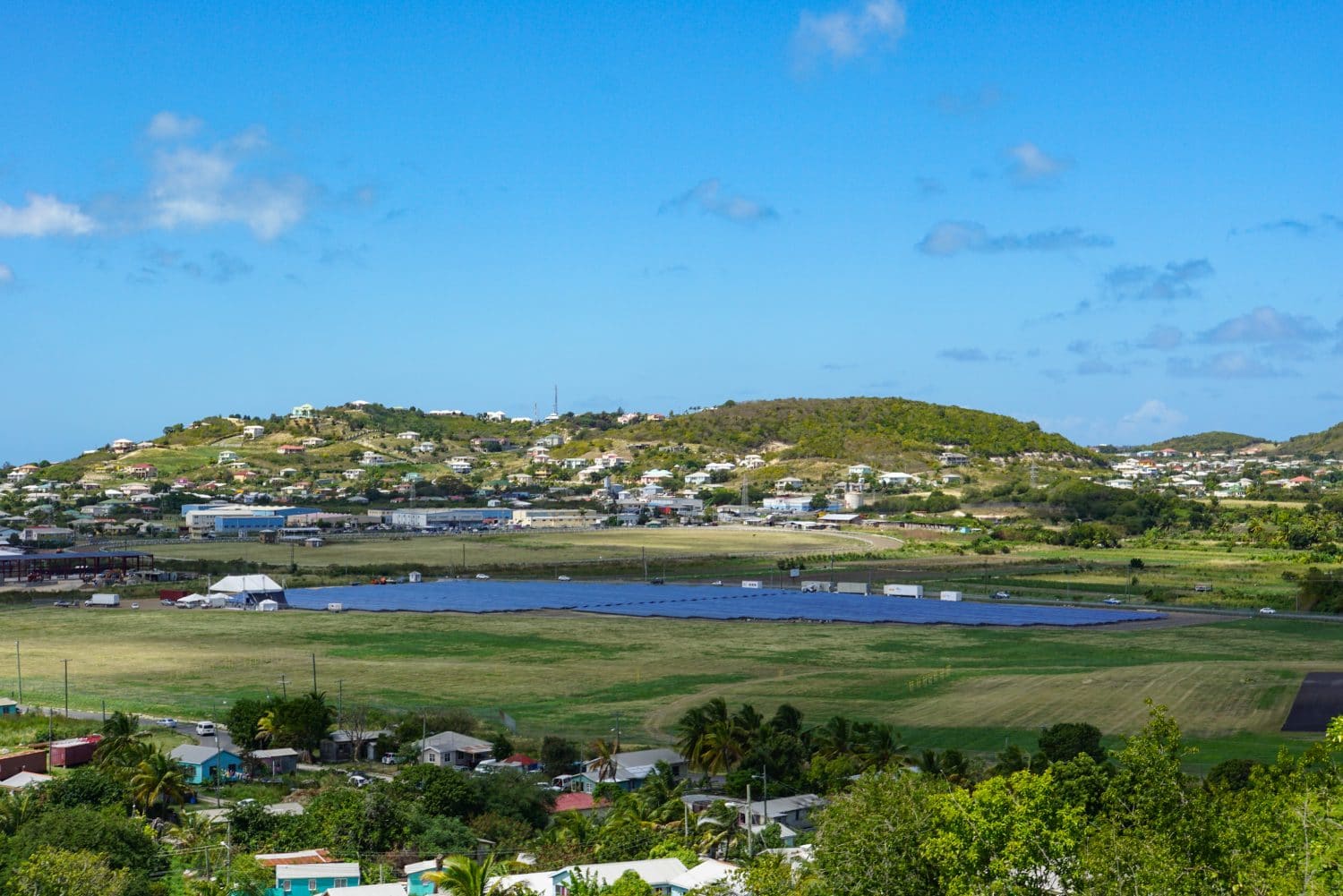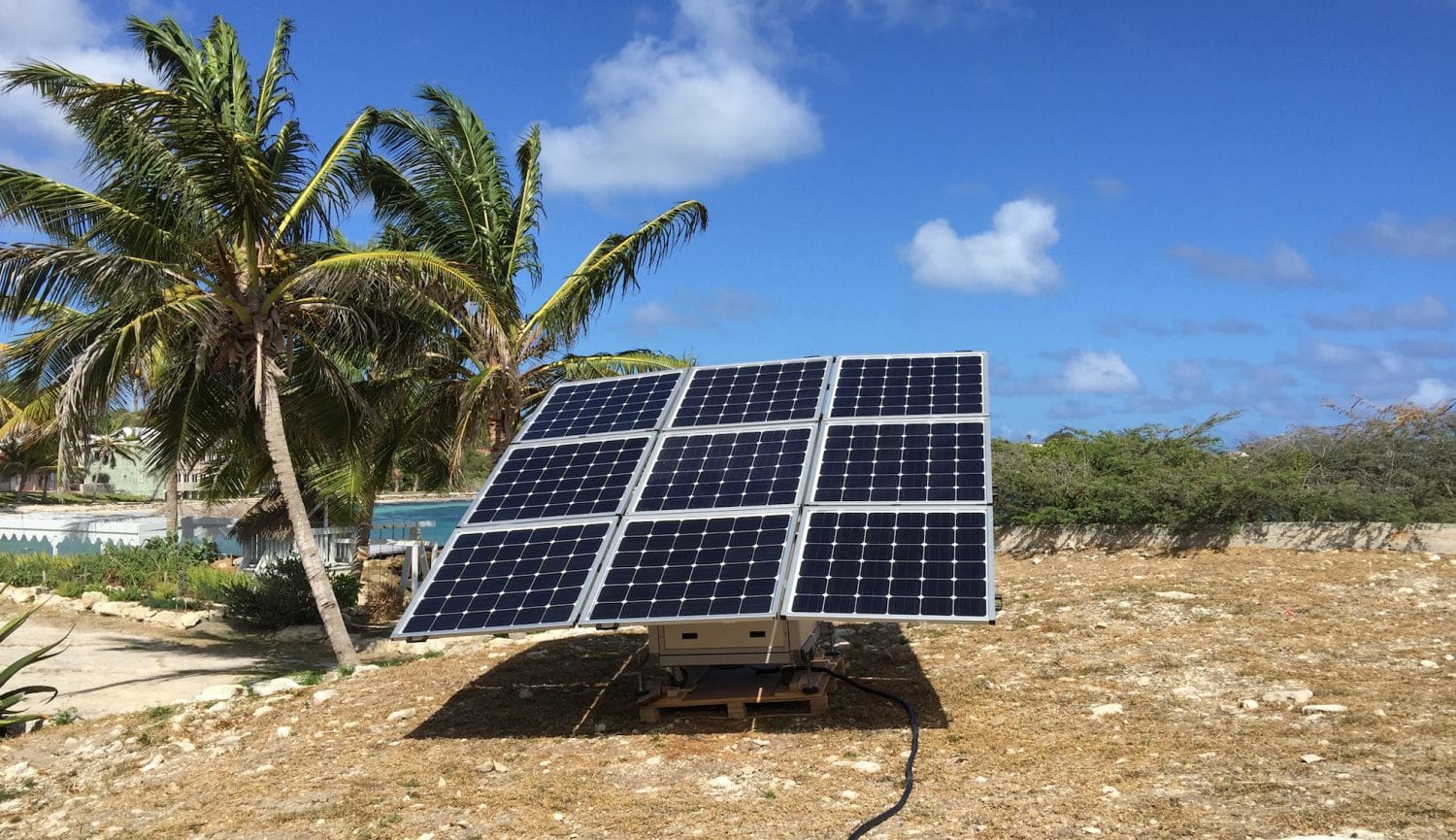
Renewable energies to ensure reliable power supply on islands
One fifth of the countries worldwide are small island developing states. In terms of the effects of climate change, these regions belong to the most vulnerable worldwide. Sea level rise and increasing extreme weather events such as tropical storms represent real dangers for the existence of small islands. Therefore a transition to renewable energies, away from expensive and polluting fossil fuels, is urgently needed. Thanks to the abundant availability of unlimited clean energy sources such as wind or sun this shift is possible, realistic and commercially viable.
The generation of energy on many small island states represents a heavy burden. Due to the dependence on fossil fuels from abroad and the high costs, which include the purchase price but also the costs for the importation of oil and gas to remote areas, the economic strength of these states is importantly weakened. Considering these economical and environmental impacts, the introduction of alternative energy technologies is of vital importance for small island states. Whilst they are producing only a small part of the worldwide CO2 emissions, those regions will be most affected by the fall-out of climate change and are consequently dependent on a sustainable development.

Rooftop solar installations are perfectly suited to switch from fossil fuels to renewable energy supply.
Thanks to renewable resources, such as the power of the sun, the required natural potential to switch to a clean energy supply is extensive. The location of small islands in the tropics allows for an outstanding and reliable / bankable energy output of photovoltaic systems. In times of consistently falling costs of solar installations and improvements of the system performance, the path is eased to switch from fossil fuels to sustainable energy supply. In order to foster this development, the Alliance of Small Island States (AOSIS) has agreed an Initiative for Renewable Island Energy during the COP22 Climate Conference including the scaling up of already existing supports and programs, mainly financing resources.
Several small islands have already taken measures towards a shift to renewables, such as the Pacific Islands Samoa and the Cook Islands aiming to reach 100 % renewable energy supply by 2017 and 2020. In the Caribbean, the government of the twin-island state Antigua and Barbuda has set an example for the region with its target to generate 20 per cent of the national required electricity by utilising solar energy. In collaboration with the UK-based clean energy provider PV Energy a 10 MWp clean energy cluster has been agreed. Within the scope of this contract, especially the 3 MWp sun2live solar power plant at the V. C. Bird International Airport Antigua covering almost the airport’s entire energy consumption represents the island’s progress in terms of sustainable development.

The 3 MWp sun2live solar power plant at the Antiguan Airport represents the island’s commitment to sustainability.
Moreover, further large-scale facilities will be constructed. Government-owned buildings are provided with rooftop solar installations and the portable solar power and storage system sun2go xl ensures reliable energy supply for remote communities. Antigua and Barbuda’s commitment to sustainability is a model example of a small island aiming to abandon the use of fossil fuels and to contribute to fight climate change for a greener economy.

The sun2go xl provides remote communities with reliable clean energy.

|
Find out more about governmental rooftop installations in Antigua and Barbuda |

